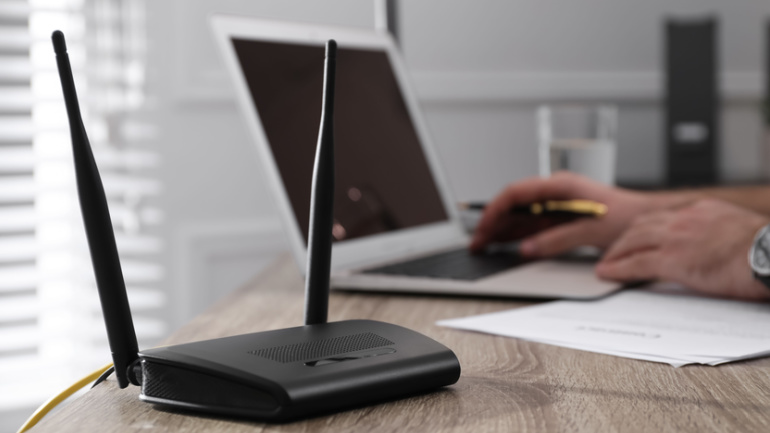The future of the intelligent world is orbiting around the power of 10Gbps bandwidth, forming the vital backbone of digital advancement. As the tech world continues to evolve, the network upgrades, too, strive to match pace, evident in the successful transition from gigabit to more powerful 10Gbps optical networks, or F5.5G. Huawei stands at the helm of this transition, providing comprehensive solutions for operators. With new-age high-speed, low latency connections, and a focus on enhanced user experiences, the stage is being set for the world’s leap into the F5.5G era.
CityFibre’s new, True Gig provides a 1.2 Gbps wholesale service, aiming to clear the haze in UK telecommunications advertising and help ISPs deliver gigabit broadband services to their customers. This offering not only circumvents stringent advertising regulations but also supports CityFibre’s vision of an honest high-speed fibre network. The question posed is, will this clear the muddy waters of broadband advertising while promoting a fibre revolution in the UK?
IBM and AWS are joining forces to enhance generative AI solutions. IBM Consulting will train 10,000 consultants in AWS generative AI by 2024, offering services like Contact Center Modernization with Amazon Connect. Sinch is partnering with Webex by Cisco to launch Sinch Calling with Webex, an integrated product combining messaging, meetings, and voice capabilities. Ooma is expanding its services to the Asia Pacific region to support IWG’s work solutions, providing phone and unified communications services. Connectbase is expanding data capabilities in The Connected World platform, offering detailed tenancy data for network operators expanding in the UK and Ireland.
UK’s major mobile infrastructure entities have formed the Mobile Infrastructure Forum, aiming to boost wireless connectivity across the UK and improve network rollout efficiency. Meanwhile, industry insiders are lobbying for a smoother operation process, amidst challenges like mast site location and negotiation with landlords.
SpaceX’s Starlink is paving the way for direct-to-mobile services, thanks to a progressive partnership with T-Mobile. Going beyond termianls, the ambitious endeavor could allow unmodified smartphones to directly connect with satellites. Beginning with text messaging in 2024, comprehensive voice and data services are slated to follow in 2025. However, AT&T and the Rural Wireless Association express concerns about possible interference with commercial networks, prompting fierce debate over the fine lines of regulatory procedures.
Navigating an increasingly challenging market, Nokia is bracing for reductions in staff numbers bolstered by a severe 15% year-on-year sales decline. Despite facing these obstacles, including a slowed pace of 5G deployment in India and underperforming Network Infrastructure division, Nokia’s Cloud and Network Services remain resilient. Amidst downsizing, CEO Pekka Lundmark forecasts a more optimistic fourth quarter, exemplifying the struggle between current hardships and future potential.
EXA Infrastructure, the largest dedicated digital infrastructure platform connecting Europe and North America, today announced it has added a fifth transatlantic route to its network footprint with the addition of the Dunant cable, connecting the US and Europe via a southern corridor across the Atlantic. This new route complements EXA’s existing cables, connecting Paris and Bordeaux in France to the large data centre clusters of Virginia Beach, Richmond and Ashburn in the US. This new route offers excellent diversity from other transatlantic cables, as well as connecting to EXA’s extensive European backbone onwards to Madrid, Barcelona and Marseille via differentiated routes.
Explore EE’s new ‘everything app’, aiming to centralize device sales and manage subscriptions. This all-encompassing platform offers the ability to purchase gaming accessories or trade devices. Alongside this, EE has introduced enhanced broadband and mobile packages, and a focus on personalized customer service. As the company confidently adjusts to its innovative role within the telecommunications landscape, competitors are left needing to pick up the pace.
Neos Networks accelerates its journey toward 100 on-net data centres with the new addition of two pivotal UK sites to its fibre network. Offering secure and high-capacity connectivity, these centres bolster the UK’s tech hubs while surging towards embracing digital innovations and reliable connectivity. The impact of such expansion unfolds an intriguing storyline of the country’s evolving connectivity landscape.
The looming merger of Vodafone and Three in the UK sparks heated debate. Anticipated job creation sits around 12,000, yet union estimates portend a job cut of around 1,000 to 1,600. Amidst global job-shedding by Vodafone and Three’s concerning job loss record, an £11 billion pledge to enhance network coverage brings a glimmer of hope. However, hazy figures on staffing levels and possible challenges accessing skilled labor add to the uncertainty.













